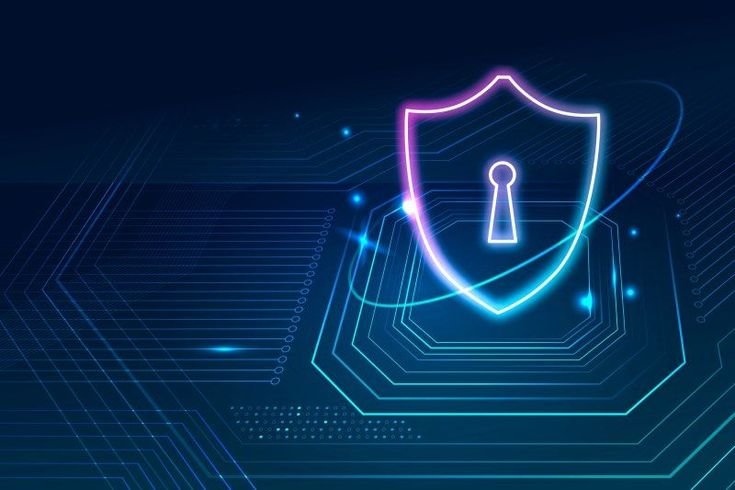In a world where data breaches and cyber threats are on the rise, the demand for skilled cybersecurity professionals has never been higher. With organizations across every industry working to protect sensitive data and systems, cybersecurity has emerged as one of the most sought-after career fields. If you’re considering a job in cybersecurity, you might be wondering, “How do I get started?”
This guide will walk you through the steps to break into the exciting and high-demand field of cybersecurity.
1. Understand the Field of Cybersecurity
Cybersecurity is all about protecting computer systems, networks, and data from malicious attacks. As a cybersecurity professional, your role will vary depending on your specialization. Some common areas include:
- Network Security: Protecting the integrity and confidentiality of data within networks.
- Application Security: Ensuring software applications are secure from threats.
- Penetration Testing: Acting like a hacker to find vulnerabilities in systems before bad actors do.
- Incident Response: Managing and mitigating the effects of security breaches.
- Governance, Risk, and Compliance (GRC): Developing policies and frameworks to minimize risks.
Before you start on this career path, it’s important to research different roles within cybersecurity to see which area interests you most.
2. Build the Right Skills
Cybersecurity requires a mix of technical and non-technical skills. Here’s a breakdown of some essential skills you’ll need:
- Technical Skills:
- Networking: Understanding TCP/IP, DNS, firewalls, and VPNs is crucial.
- Operating Systems: Learn Windows, Linux, and macOS security configurations.
- Programming: Knowledge of Python, C++, or JavaScript is useful for writing security scripts and tools.
- Cryptography: Protecting information using encryption and decryption.
- Ethical Hacking: Learn how to identify vulnerabilities through penetration testing.
- Non-Technical Skills:
- Problem-Solving: Cybersecurity is a dynamic field, and problem-solving is key when identifying and mitigating threats.
- Attention to Detail: A single overlooked vulnerability can result in significant security risks.
- Communication: You’ll need to explain complex security issues to non-technical stakeholders.
3. Earn Relevant Certifications
Certifications can be your foot in the door, especially if you’re new to the field. They validate your skills and show potential employers that you have a strong foundation in cybersecurity. Some top certifications to consider include:
- CompTIA Security+: A beginner-friendly certification that covers foundational security skills.
- Certified Ethical Hacker (CEH): Focuses on penetration testing and ethical hacking techniques.
- Certified Information Systems Security Professional (CISSP): One of the most respected certifications, suitable for more advanced professionals.
- Certified Information Security Manager (CISM): Geared towards individuals in management roles.
- Certified Information Systems Auditor (CISA): Ideal for those interested in IT audit and control.
Many certifications require passing an exam, and some may need a few years of experience in the field. Start with beginner certifications like Security+ and gradually work your way up.
4. Get a Relevant Degree (Optional)
While a degree is not mandatory to get into cybersecurity, having one can be an advantage, especially for higher-level roles. Many cybersecurity professionals come from backgrounds in:
- Computer Science
- Information Technology
- Cybersecurity
- Information Systems
However, a degree isn’t the only path to success in cybersecurity. Certifications, hands-on experience, and personal projects can often outweigh formal education.
5. Gain Hands-On Experience
In cybersecurity, practical experience is just as important as theoretical knowledge. Here are ways you can gain hands-on experience:
- Labs and Sandboxes: Create your own virtual environments to practice penetration testing, configure firewalls, and simulate real-world attacks.
- Internships: Look for internships or entry-level roles that focus on IT support, networking, or cybersecurity.
- Bug Bounty Programs: Many companies, including Google and Facebook, offer bug bounty programs where you can earn rewards for finding security vulnerabilities in their systems.
- Capture the Flag (CTF) Competitions: Participate in CTF competitions to practice ethical hacking and problem-solving in a competitive environment.
- Open Source Projects: Contribute to cybersecurity-related open-source projects on GitHub to gain experience and showcase your skills.
6. Network with Cybersecurity Professionals
Networking is a crucial aspect of building your career. Attend cybersecurity conferences, join online forums, and connect with professionals on LinkedIn. You can also:
- Join cybersecurity groups on platforms like Reddit and Discord.
- Participate in cybersecurity meetups or attend conferences such as DEF CON, Black Hat, and RSA Conference.
- Follow cybersecurity blogs, podcasts, and thought leaders to stay updated on industry trends.
7. Build a Portfolio
Your portfolio can be a powerful tool when applying for jobs. Showcase your hands-on experience, including:
- CTF Scores: Mention your participation and rankings in Capture the Flag competitions.
- Bug Bounties: Highlight the vulnerabilities you’ve discovered in bug bounty programs.
- Projects: Include personal projects like setting up firewalls, creating a secure web application, or performing vulnerability assessments.
A portfolio demonstrates your abilities and provides tangible proof of your skills to potential employers.
8. Start Applying for Jobs
Once you’ve gained the necessary skills and experience, it’s time to start applying for jobs. You can look for roles such as:
- Security Analyst: Monitor and respond to security incidents.
- Penetration Tester: Perform vulnerability assessments and ethical hacking.
- Security Engineer: Design and implement security measures to protect networks and systems.
- Incident Responder: React quickly to security breaches and minimize damage.
- Security Consultant: Advise organizations on best security practices and solutions.
Use job boards like LinkedIn, Indeed, and specialized cybersecurity job sites like CyberSecJobs and InfoSec Jobs to find positions.
9. Keep Learning and Stay Updated
Cybersecurity is an ever-evolving field. New threats and technologies emerge daily, so continuous learning is essential. Consider joining professional organizations like (ISC)² or ISACA, which offer resources, networking opportunities, and continuing education.
Staying informed about new trends, tools, and regulations will make you a valuable asset to any organization. Whether it’s taking advanced courses, earning new certifications, or participating in workshops, a growth mindset will keep your cybersecurity career thriving.
Conclusion
Getting a job in cybersecurity requires a combination of the right skills, certifications, and hands-on experience. By following these steps, you’ll be well on your way to entering this exciting field. Cybersecurity is a dynamic and rewarding career path with endless opportunities, and with dedication, you can build a successful and impactful career protecting systems and data from the ever-growing threat of cyberattacks.





